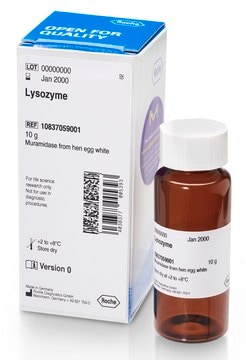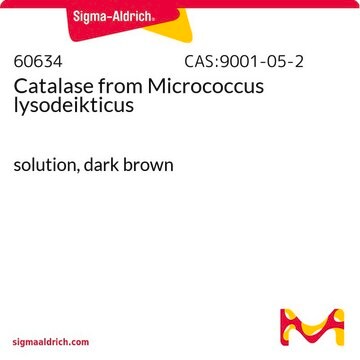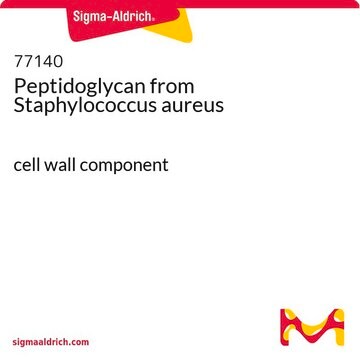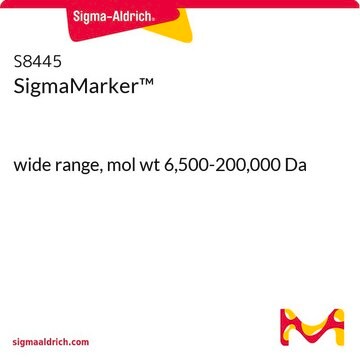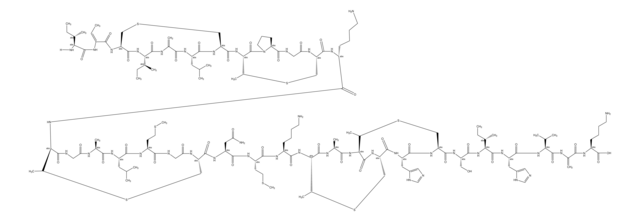M0508
Micrococcus lysodeikticus ATCC No. 4698
lyophilized cells
Sign Into View Organizational & Contract Pricing
All Photos(2)
About This Item
UNSPSC Code:
41106305
NACRES:
NA.51
Recommended Products
Other Notes
A source of DNA.
Preparation Note
Washed in 0.01 M EDTA, pH 7.0, and 0.15 M sodium chloride.
Storage Class
11 - Combustible Solids
wgk_germany
WGK 3
flash_point_f
Not applicable
flash_point_c
Not applicable
ppe
Eyeshields, Gloves, type N95 (US)
Choose from one of the most recent versions:
Certificates of Analysis (COA)
Lot/Batch Number
Don't see the Right Version?
If you require a particular version, you can look up a specific certificate by the Lot or Batch number.
Already Own This Product?
Find documentation for the products that you have recently purchased in the Document Library.
Customers Also Viewed
G Buist et al.
Journal of bacteriology, 177(6), 1554-1563 (1995-03-01)
A gene of Lactococcus lactis subsp. cremoris MG1363 encoding a peptidoglycan hydrolase was identified in a genomic library of the strain in pUC19 by screening Escherichia coli transformants for cell wall lysis activity on a medium containing autoclaved, lyophilized Micrococcus
Soichiro Nakamura et al.
Bioconjugate chemistry, 17(5), 1170-1177 (2006-09-21)
Bioactive oligomannosyl lysozyme with improved surface functionalities was successfully prepared by using an extracellular pH-sensitive glycosylation system for heterogeneous protein in yeast cell. A recombinant Saccharomyces cerevisiae carrying a mutant lysozyme gene encoding the signal sequence of an N-linked glycosylation
C Potvin et al.
Molecular & general genetics : MGG, 214(2), 241-248 (1988-10-01)
Several hundred bacterial isolates were screened for bacteriolytic activity by growing them on agar medium containing autoclaved, lyophilized Micrococcus lysodeikticus cells as the substrate. A Bacillus sp. producing the largest lytic zone was selected. A genomic bank of this selected
Covalently closed circular DNA from Micrococcus lysodeikticus cells infected with phage N1.
C S Lee et al.
Biochemical and biophysical research communications, 32(5), 752-756 (1968-09-06)
Fatma M Abdelhamid et al.
Environmental science and pollution research international, 27(10), 10950-10965 (2020-01-19)
Lead, toxic heavy metal of global concern, induces toxicity in various organs via oxidative stress. Thereby, in this study, the protective role of curcumin against lead acetate-induced toxicity was evaluated. Thirty-two male albino rats were allocated equally into four groups
Our team of scientists has experience in all areas of research including Life Science, Material Science, Chemical Synthesis, Chromatography, Analytical and many others.
Contact Technical Service

